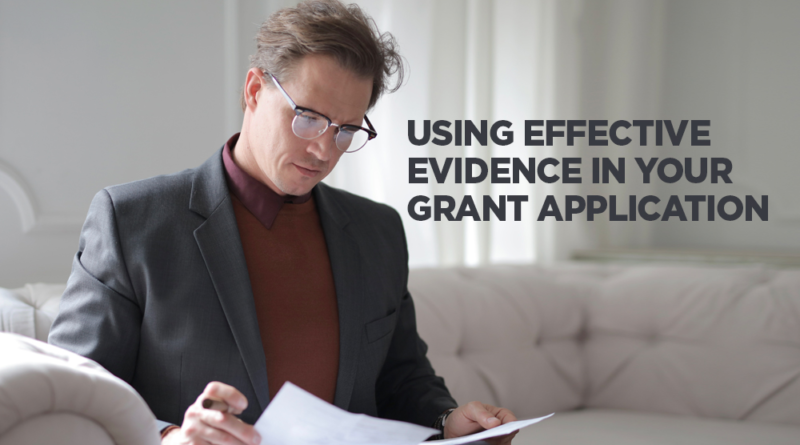6 Tips on How to Effectively Use Evidence in Your Grant Application
One of the most important qualities funding sources looks for when they review grant applications is the supporting evidence. In a highly competitive scene, what you include in your grant proposal can be crucial to the outcome of your application. Remember, funders prefer proof over good intentions! While good intentions are nice, you must be able to back up your words with factual proof.
It can take time to gather the evidence you need as supporting proof. Once you have collected evidence, you will have to communicate it effectively within your grant proposal. Below, consider using the tips and examples as a guideline on how you could present evidence in a more effective way.
6 Tips of How to Use Evidence Effectively
| Tip | Example of evidence being presented less effectively | Example of evidence being presented more effectively |
|---|---|---|
| Be clear and concise: Use clear and concise language to express your evidence. This will help produce a logical and professional application. | “The bushfires in 2006 were really damaging, as were those in 2009, and there have been even more since then, which definitely highlights that emergency management is really important.” | “The 13 incidences of bushfires rated at a critical level by US Forest Service since 2006 demonstrates the importance of effective emergency management.” |
| Be accurate: Avoid emotive language. The most persuasive applications state their evidence objectively and dispassionately. | “The issue of (name specific issue) is destroying our community.” | “In a series of 20 interviews conducted by our organization, 16 individuals identified (name specific issue) as a major challenge for our community.” |
| Be relevant: Ensuring your evidence is clearly relevant is just as important as expressing your evidence in clear language. | “In our organization, we have 15 staff members.” | “In our organization, we have 15 staff members, two of whom are dedicated full time to the delivery of (this service). Of the staff, another three are trained to also deliver (this service) in case there are times when the full-time staff are not available.” |
| Remain current: Old evidence is less persuasive than new. Use the most up-to-date evidence you can find. And, if you do use older evidence, also make sure to explain why. | “Between 1991 and 1996, the target population for our service grew by 23 percent.” | “Between 2017 and 2022, the target population for our service grew by 12 percent (Source 2022).” |
| Attribute your evidence: Your evidence will be more persuasive if, whenever you use it in your application, you attribute it clearly. This includes both quantitative and qualitative evidence. Remember to cite data as well as ideas and direct quotes from interviews, surveys, and media. | “Experts recognize that the service our organization provides is an integral component of care for our target population.” | “Smith (2021) argues that the service our organization provides is an integral component of care for our target population.” |
| Use both qualitative and quantitative evidence: Both offer distinct advantages. Quantitative evidence provides breadth and can be used to compare large numbers. However, qualitative evidence is often deeper and richer. For this reason, it is best to use a combination of both. | “People we spoke to are often really stressed because they don’t know who can help.” | “In a survey of 30 people conducted by our organization, 56% of people who faced (name specific issue) reported the lack of awareness of available support as their most immediate need. Assistance to apply for support was the second-highest response.” |
Summary
The grant review process is rigid and also can be tougher if you are applying for a government grant. Assessments for all applications will be a against the eligibility requirements in the relevant grant guidelines. Typically, an application that does not meet the eligibility requirements will be ineligible.
With the correct knowledge at your fingertips, you can use these tools to write a winning grant application. Subsequently, it may take you a few attempts to get right and may take time to master. However, being able to write your own grants can help save you money so you don’t need to hire a grant writer.
Need more help writing your grant application? Take advantage of the free resources available at GrantWatch.com. Discover sample grants and funding documents, a glossary of terms, as well as other useful resources to help!

